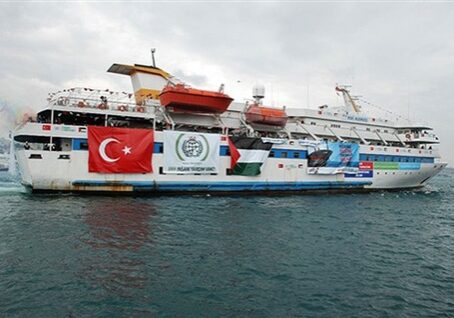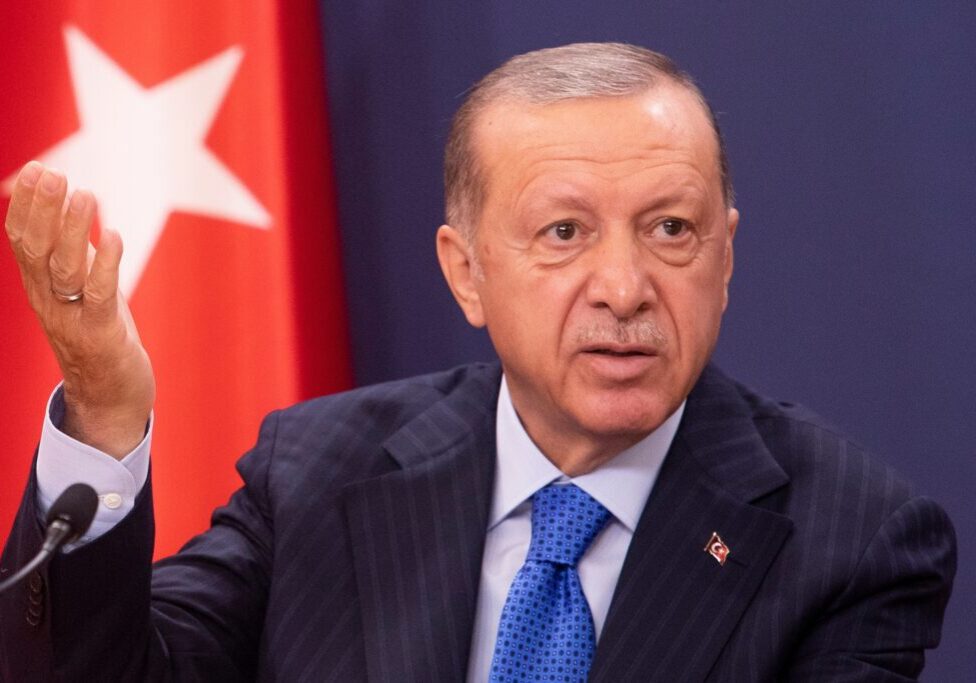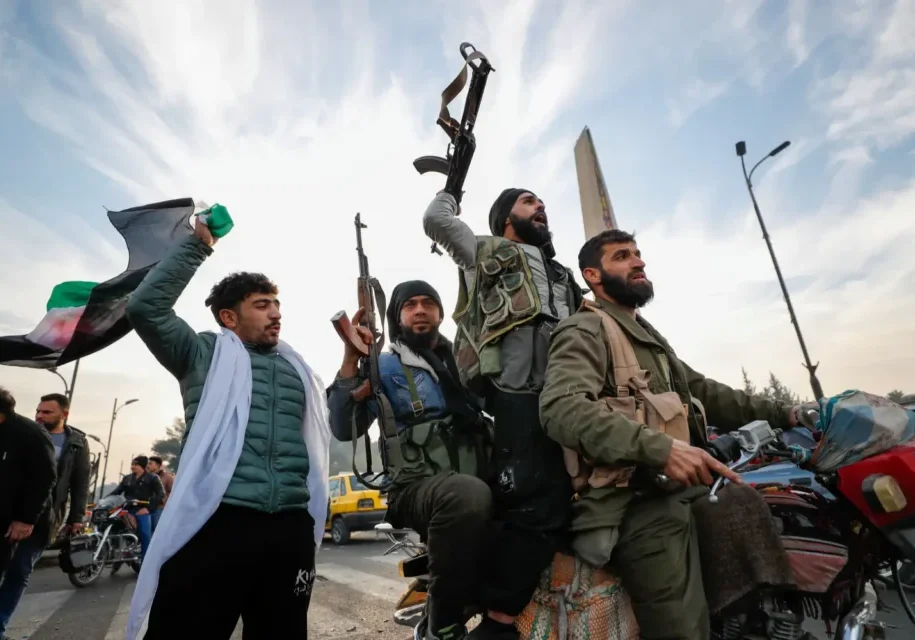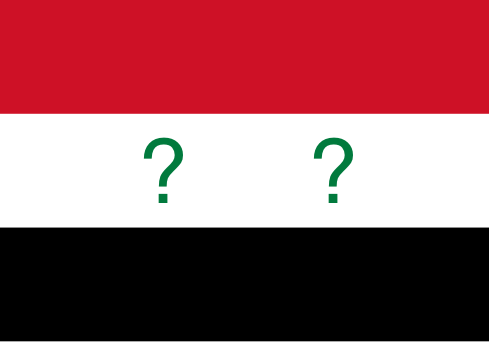Australia/Israel Review
Essay: The Turning of Turkey
Jul 27, 2010 | Abigail Chernick
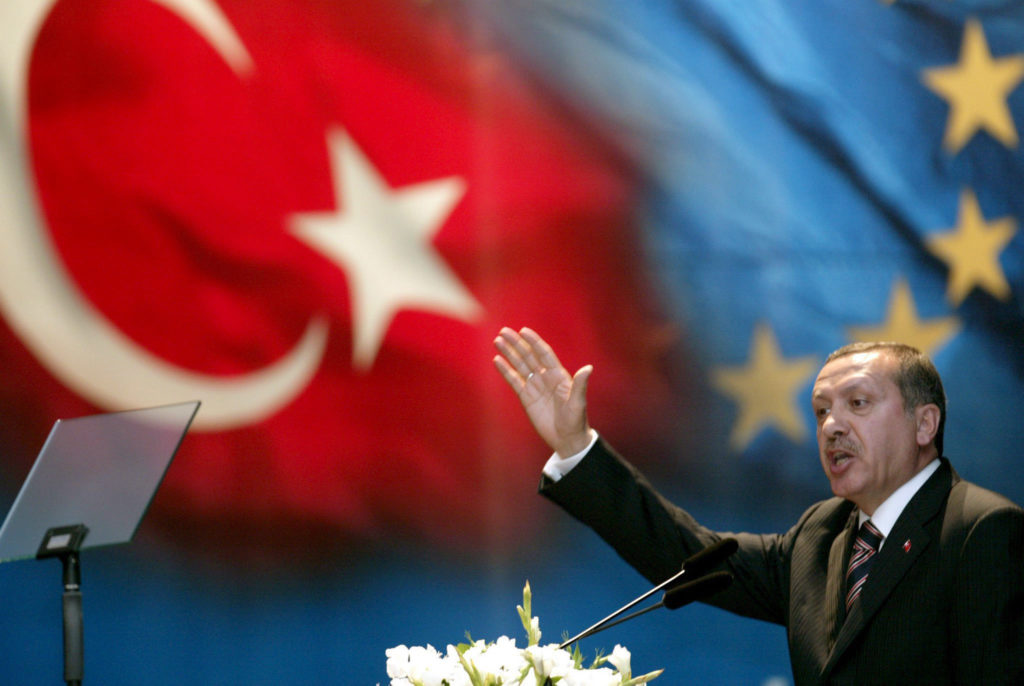
Since its decisive re-election in 2007, Turkish Prime Minister Recep Tayyip Erdogan’s Justice and Development Party (AKP) has been re-aligning the country’s foreign policy. Under Erdogan’s governance, Turkey has been moving away from its 20th-century Western orientation and towards an alliance with Iran, Syria and their proxies. But with the upcoming 2011 elections, hope remains for a retreat from these policies and re-alignment with the West, especially if the US and the EU move quickly and wisely to demonstrate to the Turkish people what the costs of such a permanent change of alignment would be.
Since Mustafa Kemal Ataturk’s 1923 establishment of the Turkish Republic and the ensuing institution of Kemalist reforms dedicated to the Westernisation of Turkish politics and culture, Turkey has been firmly oriented towards the West. In 1949 Turkey became the first Muslim country to recognise Israel, and for years the two countries enjoyed close military and political cooperation. America, too, had a close relationship with Turkey, welcoming it into NATO in 1952. More recently, Turkey has been working hard on its bid for EU membership, winning candidacy status in 1999 and entering accession negotiations in late 2004.
But recent events indicate that the Turkish-Western love affair has reached its end. Since the 2002 election of the AKP, Erdogan has been moving Turkey in a new direction, turning his back on the West in favour of an alliance with Syria and Iran, and their proxies Hamas and Hezbollah. Why, after many decades of productive engagement with the West, has Erdogan changed direction? Perhaps more importantly, can anything be done to encourage Turkey to change direction again?
There has been considerable discussion and finger-pointing on the question of who “lost” Turkey. Was it the EU, by dragging its feet on Turkey’s membership campaign? Or was Israel’s 2008-09 Gaza war and clumsy behaviour towards Ankara the cause? In truth, the move is not reactive, but the result of Erdogan’s worldview, ambitions for Turkey, and Islamist agenda.
Consider Erdogan’s choice of foreign minister. Ahmet Davutoglu articulated his foreign policy ideas in the 2001 book Strategic Depth, in which he called for increased engagement in the Middle East, Asia, Russia, and the Balkans. Respected Israel journalist and associate of the Washington Institute for Near East Policy Ehud Ya’ari describes Davutoglu as a “philosopher-king” who “sees himself as a Muslim Kissinger,” and is the brain behind Turkey’s policy of “drang nach osten, going back to the East.” He says that Davutoglu’s ideas are based on “strategic depth, zero problems with neighbours except Israel, and what amounts to neo-Ottomanism; that is, all the regions which were under the Ottoman Caliphate should be the sphere of influence of Turkey.”
In practical terms, says Ya’ari, this has led to the emergence of what he calls the “Northern Alliance,” a loose alliance between Iran, Syria, Turkey, Hamas and Hezbollah; “those leaders and countries that believe that declining US and Western power in general in the region allows others to become the dominant forces in the region.” (For more on Ya’ari’s views on the subject, see 18-21) In other words, Erdogan wants to turn Turkey into a regional superpower, and he isn’t above getting into bed with Ahmadinejad to do it.
Moreover, the AKP’s pedigree is distinctly Islamist. Ya’ari refers to the AKP as “nothing but a Turkish version of the Muslim Brotherhood.” Soner Cagaptay, senior fellow and director of the Turkish Research Program at the Washington Institute, points out in “No Women, No Europe” that although the AKP resists being labelled Islamist, it is “rooted in Turkey’s Islamist opposition; specifically the Welfare Party, or RP, which was shut down in 1998 by the country’s Constitutional Court for violating the secular and democratic principles in the Turkish Constitution. The AKP was born out of the RP’s ashes, with RP cadres bringing that party’s organisational and financial network to the AKP.”
While it hasn’t been as successful as Hamas in enforcing Islamic law on its population, the AKP has certainly attempted steps in that direction. Erdogan has tried to criminalise adultery and reverse the headscarf ban, and kept women out of positions of power in the government. “Under the AKP,” writes Cagaptay, “Turkish women are barred from power and are nonexistent in the executive levels of the bureaucracy.” The Islamist bond with regimes in Iran and Gaza, and Hezbollah in Lebanon, only serves to reinforce the AKP’s view that its strategic depth lies with the Muslim East, not the secular, liberal West.
Turkey’s sponsorship, with Brazil, of a nuclear fuel-swap plan aimed at helping Iran avoid sanctions, and its vote against the Iran sanctions resolution at the United Nations Security Council, are recent and striking examples of Turkey’s foreign policy shift. So isTurkey’s about-face on Syria, from the brink of war a decade ago to visa-free travel and rapidly increasing economic ties between the two countries, as well asTurkish overtures to Hamas, such as hosting multiple international Hamas conferences.
These developments have had serious repercussions for Israel-Turkey relations. The AKP’s harsh criticism of Israel’s conflict with Hamas in early 2009 was quickly followed by Erdogan’s angry outburst at Israeli President Shimon Peres in Davos shortly thereafter. In October 2009, Turkey cancelled Israeli participation in a multinational air exercise, and a recent show on Turkish public television had a virulently anti-Israel theme, including a depiction of Israeli soldiers intentionally killing a Palestinian newborn.
May’s flotilla affair was the most spectacular example of Turkish antipathy towards Israel. Erdogan referred to Israel’s boarding of the Mavi Marmara, resulting in the deaths of nine Turks, as “inhuman state terror”, and threatened to cut diplomatic ties and downgrade economic activity with Israel over the incident, demanding an apology, compensation and an end to the Gaza blockade. But Efraim Inbar, director of the Begin-Sadat Centre for Strategic Studies, believes the flotilla was an intentional provocation, as its main organiser, the Turkish Relief Organisation (IHH), clearly has its government’s cooperation and endorsement. Ya’ari agrees.
Incitement against Israel has become a valuable tool for Erdogan. His behaviour at Davos and rhetoric concerning the flotilla have appealed to Turkish nationalistic sentiments, and increased his popularity in Arab and Muslim states. Barry Rubin, Director of the Global Research in International Affairs Centre in Israel and a veteran Turkey watcher, suggests, “Past non-AK party governments have at times been harsh in criticising Israel but they also had a strong incentive to resolve the crisis. This government finds the crisis useful.” Rubin sees no hope for reconciliation without a change in government, stating, “As long as this regime is in power, Turkish-Israeli relations will be in bad shape.”
The AKP was by no means elected with a mandate to implement these policies, receiving only 34.43% of the vote in the 2002 elections that brought it to power, thanks to the intricacies of the Turkish electoral system, in which only parties with over 10% of the vote enter parliament. Accordingly, it was initially careful to present itself as a centrist-right party with family values and a sincere interest in joining the EU, to make itself more palatable both to secularists at home and to the West.
Since then, however, Erdogan has been emboldened by developments in domestic politics and abroad. In the 2007 election, the AKP won over 45% of the popular vote and enough seats in parliament to form a government without coalition partners. Internationally, the Obama Administration’s praise for Turkey as a model of moderate Muslim democracy and tolerance for its support of Hamas have increased Erdogan’s confidence that he will not face significant international opposition.
Perhaps the most pertinent reason for the shift in policy now is that Erdogan has been successful in weakening elements of Turkish society that threaten the government’s power, including the military and the media. Prior to the AKP’s rise to power, the army had served for over half a century as the guardians of Kemalism, the set of reforms advocating secularism, modernisation and democracy instituted by Ataturk. The Turkish army is so committed to these ideals that it has on multiple occasions removed a government that it feared endangered Turkey’s secular status.
Thanks to the AKP’s efforts, those days now appear to be over. The military has lost a great deal of the prestige, authority and power it once held in Turkish society, due to a slew of allegations and arrests on conspiracy and treason charges. The AKP has particularly pushed prosecution of senior officers for alleged involvement in the “Ergenekon” terror organisation, which is accused of plotting a military coup to overthrow Erdogan.
Rubin explains that the changing role of the Turkish army has been supported by the European Union, which, “as a condition for Turkish membership, demanded the role of the military be reduced.” But Rubin sees another motivation for the AKP’s actions. “This regime,” he says, “has tried to weaken and undermine the military because the military is a major opponent of Islamism.” Inbar adds, “The Turkish army is, according to the current constitution, the defender of the Kemalist secular order,” so the AKP, which is neither Kemalist nor secular, has an interest in diminishing its control.
Indeed, many of the Ergenekon cases are troubling for the lack of conclusive evidence on which they rest, or for the use of apparently fabricated or planted evidence in prosecutions, suggesting that the AKP is not so much concerned with protecting democracy as with protecting its own hold on power. The zeal and apparently underhanded tactics with which the AKP has conducted this investigation have compromised the integrity of the judiciary and undermined any presentation of the affair as a victory for democracy over military interventionism or a step towards EU membership.
Likewise, the AKP has been curbing media freedoms, including via the acquisition of Sabah-ATV, which controls 20% of the Turkish media market, in 2005, and by levying outrageous fines against media companies critical of the government. Journalists have also been jailed on suspicion of belonging to the Ergenekon network. Last year’s Reporters Without Borders’ Press Freedom Index saw Turkey drop from 102 in 2008 to a ranking of 122 out of 175 countries.
While such developments threaten Turkish democracy, for Erdogan and the AKP’s plans they are steps forward. With the threat of military intervention gone and the independence of the media curtailed, Erdogan has the opportunity to make his ambitions a reality.
The third factor in Turkey’s foreign policy shift is a global economic situation that encourages rethinking traditional alliances and gives Erdogan leeway to pursue policies unpopular among the traditionally secular Turkish elite. Domestically, Turkey has undergone an impressive economic transformation under AKP rule. From a dismal situation a decade ago with 72% inflation and a budget deficit of 16% of gross domestic product (GDP), Turkey has made an astonishing recovery to 8% inflation and a deficit of 5.5% GDP, well within reach of the criteria for adopting the euro, if accession to the EU is indeed still on Turkey’s agenda.
Of course, the EU is currently looking less and less appealing as an economic partner. While it remains Turkey’s biggest import and export market, austerity measures being introduced in much of the EU mean that Turkish exports will likely drop considerably in the coming months. And the Greek debt crisis would be enough to make any country wary of adopting the euro. Meanwhile, Iranian-Turkish trade has been rising for years, increasing from US$1 billion in 2000 to US$10 billion in 2008. As trade between Turkey and Israel has dropped off, economic relations between Turkey and Syria have improved, and Turkish-Syrian trade is expected to soon exceed Turkish-Israeli levels. Last month, Turkey entered a free trade agreement with Jordan, Lebanon, and Syria. Clearly it is not just political considerations causing policy shifts, but the lure of expanding markets to the East.
While, as noted, Turkey’s new direction is motivated not by the behaviour of the West but rather by Islamist inclinations, the West could do more to dissuade Turkey from its current path. Rubin singles out the US for criticism, arguing that the Obama Administration’s complacency on Turkey is bolstering the regime. Rubin points out that when he talks to Turks, “they say, ‘Oh you see, the West supports the current government, it really likes them, they’re doing a good job, and pursuing these policies without cost.’” Rubin suggests that the US ease up on its support for the AKP: “It’s a delicate matter because Turkey’s a very nationalist country but on the other hand, many people in Turkey interpret US policy as being favourable to the current regime and I don’t think the opposition is happy with US policy. I cannot tell you how many conversations I’ve had with people in Turkey saying, ‘We’re not happy with US policy, US policy is rewarding the regime.’ So that’s a bad thing.”
Neither the EU nor Israel has handled the AKP as well as they might have, either. By insisting on the removal of the Turkish military from politics, the EU helped the AKP to eliminate a major check on its ability to implement its agenda. And Israel’s behaviour in the flotilla affair, though justified, appears to have played directly into Erdogan’s hands, boosting his popularity.
But the mistakes of the past can be remedied. Recent developments notwithstanding, Turkey is still a democracy and the AKP remains subject to the whims of the electorate. As problematic as the US administration’s response has been so far, a US effort to reassert itself and politically bolster the opposition might still bear fruit. Rubin suggests that Western countries “should show that they don’t like the current regime, and they should carefully do so in a way that does not seem to target the Turkish people or Turkey as a whole, that makes a distinction between the government and Turkey and that they don’t like the policies of this government.” In so doing, the US would remove the illusion that it approves of the AKP and its policies, while avoiding the alienation of the Turkish people.
The EU, as Turkey’s largest trade partner and a body which, at least on the surface, it aspires to join, has a great deal of potential influence that it has not yet exerted. A demonstration from the EU that Turkey’s economic and political interests would be better served by a more secular, liberal government and that there may be repercussions if it continues on its current path could, if done correctly, increase domestic resentment towards the AKP.
As for what Israel’s response should be to Erdogan’s affronts, Inbar suggests that Israel stand its ground on vital interests but take care, like the US, to “distinguish between the Turkish state and society, and the current government that deserves a strong riposte.” He adds that in confronting Erdogan, “Firm, level-headed responses will be of assistance to pro-Western Turks in their domestic debate.” Presenting a calm but strong front in reply to Erdogan’s incitement would deny him additional fodder but also keep Israel from projecting weakness, leaving the door open for an resumption of good relations should the AKP lose power.
Turkey has been an important ally for the West over past decades, and the spectre of losing it for good to the newly emerging Northern Bloc is indeed cause for alarm. Rubin goes so far as to dub it “the biggest loss for the democratic West since the Iranian revolution three decades ago.” But there are hopeful signs as well.
Rubin is adamant that the recent shift in Turkish foreign policy doesn’t necessarily reflect the desires of Turkish society. “I think it’s very important to understand here, we are not talking about Turkey… about the Turkish people… about the nation. We are talking about the actions of a specific regime,” he says, pointing out that although the AKP’s foreign policy is “a disaster” for Western interests, the situation may well be temporary.
Another possible reason for optimism is that elections are due next year, and Deniz Baykal, the disgraced former head of the Republican Peoples Party (CHP) has been replaced with the charismatic and pro-European Kemal Kilicdaroglu. Rubin says of the opposition: “The polls now show the opposition doing well, finally there’s a really strong opposition leader. So even though things could go either way, and although the regime’s policy is much worse than it was, there’s perhaps more reason to think that there is hope, there is an alternative.” Ya’ari, though less sanguine on the matter of the CHP’s prospects in the 2011 elections, also “wouldn’t give up on the secular powers and elements and sectors of the Turkish society, certainly not.” And Inbar too sees reason to hope for a democratic change of government, surmising that if current trends continue, the elections could result in “a coalition government between two secular parties or alternatively a coalition government between one secular party and the AKP, which will diminish the power of the AKP in Turkish politics.” Should this occur, suggests Inbar, the new government “will definitely have second thoughts about aligning themselves with Iran and with Hezbollah and with Hamas. Those policies are not popular in Turkey, not even among the Islamists.”
In short, though Turkey’s current trajectory is worrisome, it does not necessarily represent a permanent shift in Turkish foreign policy. While Erdogan may have made up his mind about where Turkey’s interests lie, the Turkish electorate doesn’t seem so certain. A swift and modulated demonstration from the West now, before the elections, of what Turkey stands to lose if it decides to pursue its alliance with the Northern Bloc could do much to convince the Turkish people to vote for the secular opposition parties over Erdogan’s AKP. And a new government led by the CHP would likely stage a quick retreat back to the welcoming arms of the West. Kemal Ataturk established the CHP in the 1920s with the vision of making Turkey European. It is now up to another Kemal at the head of the CHP to keep that dream alive. Careful, coordinated and engaged policies from the West would make such a change far more likely.
Tags: Turkey

